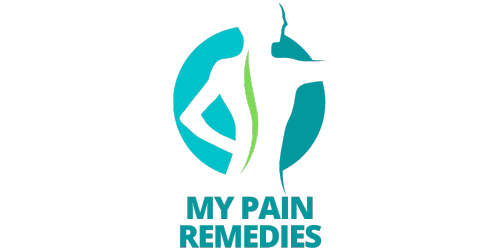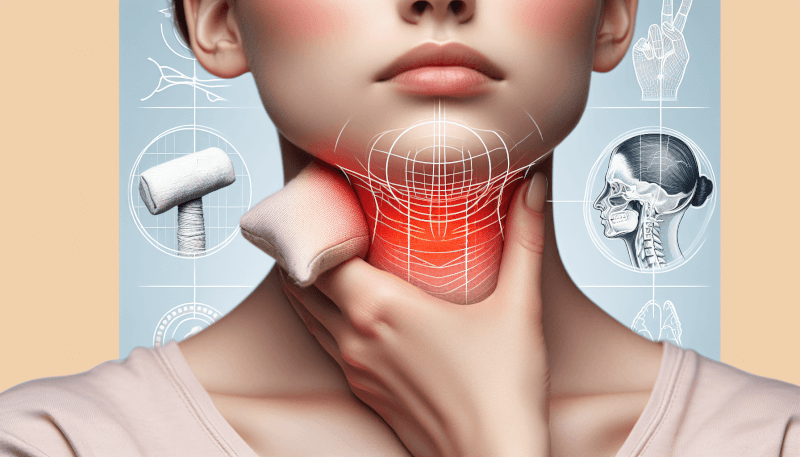Are you tired of dealing with jaw pain that just won’t seem to go away? Look no further! In this article, you’ll discover a range of effective and easy-to-follow home remedies that will have you feeling relief in no time. Whether it’s due to temporomandibular joint disorder (TMJ), teeth grinding, or simply a result of stress and tension, these natural remedies are here to soothe and alleviate your jaw pain. Say goodbye to discomfort and hello to a happier, pain-free jaw!

Hot and Cold Therapy
Hot Compress
If you’re experiencing jaw pain, one effective home remedy is hot compress therapy. Applying a hot compress to the affected area can help relax tense muscles and reduce inflammation, providing much-needed relief. To create a hot compress, simply soak a clean towel in hot water, wring out the excess moisture, and place it on your jaw for about 15 minutes. Remember to test the temperature of the compress on your wrist before applying it to your face to avoid burns.
Cold Compress
Alternatively, if you’re dealing with swelling and acute pain in your jaw, a cold compress can be highly beneficial. It works by numbing the area and reducing swelling, providing immediate relief. To make a cold compress, wrap a few ice cubes in a clean cloth or use a frozen gel pack, and apply it to your jaw for about 10 to 15 minutes. Be sure to wrap the compress in a cloth to avoid direct contact with your skin, as this can lead to ice burns. Remember to take breaks and not to apply the cold compress for an extended period of time.
Massage and Exercise
Gentle Massage
Massage is a great way to alleviate jaw pain caused by tight muscles and improve blood circulation in the area. With clean hands, gently apply pressure to the sides of your face, working in circular motions. Focus on the areas near your temple, jawbone, and behind your earlobes. This will help relieve tension and promote relaxation. You can also use your fingertips to gently massage your jaw joints in small circular motions. Remember to be gentle and avoid putting too much pressure, as it may worsen the pain.
Jaw Exercises
In addition to massage, specific jaw exercises can help strengthen your jaw muscles, prevent stiffness, and reduce pain. One simple exercise involves opening and closing your mouth slowly, as if you are yawning. Repeat this exercise several times throughout the day to improve mobility. Another exercise involves placing a finger on your chin and moving your jaw from side to side, applying gentle resistance. This can help increase flexibility and relieve tension in the jaw muscles. Remember to consult a healthcare professional for guidance on the appropriate exercises for your specific condition.
Dietary Changes
Soft Food Diet
When experiencing jaw pain, opting for a soft food diet can significantly reduce discomfort during chewing. Incorporate foods that require minimal effort to chew, such as mashed potatoes, yogurt, scrambled eggs, cooked vegetables, and smoothies. Avoid consuming hard or chewy foods that put additional strain on your jaw, such as nuts, candy, chewy bread, or tough meats. Remember to maintain a balanced diet and consult a dietitian for personalized dietary recommendations.
Avoiding Trigger Foods
Besides adopting a soft food diet, it’s important to identify and avoid trigger foods that may exacerbate jaw pain. Common trigger foods include excessively spicy or acidic foods, such as hot peppers, citrus fruits, and vinegar. Additionally, foods that require excessive chewing or are difficult to break down, like tough steaks or chewy candies, can put unnecessary strain on your jaw. Pay close attention to your body’s reactions after consuming different foods, and make a conscious effort to avoid those that worsen your symptoms.
Oral Hygiene
Proper Brushing and Flossing
Maintaining good oral hygiene is crucial for overall dental health and can also help alleviate jaw pain. Be mindful of your brushing technique and use a soft-bristled toothbrush to lessen the pressure on your jaw. Brush gently in circular motions, taking care to reach all areas of your mouth. Additionally, flossing daily can prevent food particles from getting trapped in your teeth and gums, which can lead to jaw pain or exacerbate existing discomfort. Remember to schedule regular dental check-ups to address any underlying dental issues that may contribute to jaw pain.
Use of Mouthguards
If you suspect that teeth grinding or clenching is the cause of your jaw pain, using a mouthguard can be beneficial. Mouthguards are designed to protect your teeth and jaw by creating a barrier between your upper and lower teeth. They help to reduce the impact of grinding or clenching, alleviating pressure on the jaw joints and muscles. Consult your dentist to determine the most suitable type of mouthguard for your specific needs.

Herbal Remedies
Turmeric
Turmeric, a spice commonly used in cooking, possesses natural anti-inflammatory properties that can help reduce jaw pain and inflammation. It contains a compound called curcumin, which has been shown to inhibit inflammatory pathways in the body. There are a few ways to incorporate turmeric into your daily routine. One option is to mix half a teaspoon of turmeric powder with warm water to create a paste and apply it directly to the affected area for 10 minutes before rinsing. Additionally, turmeric can be added to your diet by sprinkling it on various dishes or incorporating it into smoothies.
Clove Oil
Clove oil has been used for centuries as a natural remedy for various types of pain, including jaw pain. It contains eugenol, a compound with analgesic and anti-inflammatory properties that can provide temporary relief. Apply a few drops of clove oil to a cotton ball and gently dab it onto the affected area of your jaw. Be cautious not to swallow the oil, as it can cause irritation. You can also add a few drops of clove oil to a glass of warm water and use it as a mouthwash to soothe jaw discomfort and promote oral health.
Over-the-counter Solutions
Pain Relievers
Over-the-counter pain relievers, such as acetaminophen or ibuprofen, can temporarily alleviate jaw pain and reduce inflammation. These medications can provide short-term relief from discomfort, but it’s important to consult a healthcare professional before taking any medication, especially if you have any pre-existing medical conditions or are taking other medications. Follow the recommended dosage instructions and avoid long-term use without medical supervision.
Anti-inflammatory Gels
Topical gels or creams containing anti-inflammatory ingredients, such as menthol or capsaicin, can be applied directly to the jaw area to soothe pain and reduce inflammation. These gels work by numbing the area and providing a cooling or warming sensation that can help alleviate discomfort. Follow the product instructions for application and consult a healthcare professional if you have any concerns or are unsure about using these products.

Stress Management
Relaxation Techniques
Stress and tension can contribute to jaw pain, so incorporating relaxation techniques into your daily routine can help alleviate symptoms. Practices such as deep breathing exercises, meditation, and yoga can promote overall relaxation and reduce muscle tension, including the muscles in your jaw. Taking breaks throughout the day to engage in these activities can help manage stress and prevent it from manifesting as jaw pain.
Physical Activities
Engaging in regular physical activities, such as walking, swimming, or cycling, can help reduce stress levels and improve overall well-being. Exercise releases endorphins, which are natural painkillers and mood boosters. By incorporating physical activities into your routine, you can help manage stress levels and indirectly reduce jaw pain. Remember to start slowly and choose activities that you enjoy to make it easier to maintain a consistent exercise regimen.
Correcting Posture
Maintaining Good Posture
Poor posture can contribute to jaw pain by placing unnecessary strain on your jaw joints and muscles. Make a conscious effort to maintain good posture throughout the day, whether you’re sitting, standing, or walking. Sit up straight, align your head and neck with your shoulders, and avoid slouching. Additionally, ensure that your work or study area is ergonomically designed to support good posture. By correcting your posture, you can alleviate potential factors that contribute to jaw pain.
Avoiding Excessive Jaw Movements
Certain habits, such as excessive jaw movements or constant gum chewing, can strain the muscles and joints in your jaw, leading to pain and discomfort. To prevent the exacerbation of jaw pain, avoid unnecessary jaw movements, such as chewing gum or biting your nails. Be mindful of activities that require excessive jaw movement, such as singing or playing a musical instrument. Resting your jaw and giving the muscles time to relax can help alleviate discomfort and reduce the chances of aggravating the pain.
Avoiding Habits
Chewing Gum
Chewing gum can be a common cause of jaw pain, as it requires repetitive movements and can strain the jaw muscles. To reduce the risk of jaw pain, try to avoid chewing gum or opt for sugar-free gum that is easier on your jaw. If you have a habit of chewing gum, consider finding alternative ways to keep your mouth busy, such as chewing sugar-free mints or engaging in mindful eating.
Teeth Clenching
Many individuals unknowingly clench their teeth due to stress, anxiety, or while sleeping. Teeth clenching can contribute to jaw pain and even lead to conditions such as temporomandibular joint disorder (TMJ). To prevent teeth clenching during the day, be mindful of your jaw position and strive to keep your teeth slightly apart, with your tongue resting against the roof of your mouth. During sleep, the use of a mouthguard can help prevent teeth grinding and clenching, reducing strain on the jaw joints and muscles.
Professional Assistance
Dentist Consultation
If your jaw pain persists or worsens despite trying home remedies, it is important to consult a dentist. They can examine your jaw, teeth, and surrounding structures to identify any underlying dental issues that may contribute to the pain. A dentist may recommend specific treatments tailored to your condition, such as dental adjustments, orthodontic interventions, or the use of oral appliances.
Physical Therapy
For more severe cases of jaw pain or conditions like TMJ disorder, your dentist may refer you to a physical therapist specializing in the temporomandibular joint. Physical therapy can help improve jaw mobility, strengthen muscles, and reduce pain through targeted exercises, manual therapy, and other modalities. A physical therapist will create a personalized treatment plan based on your specific needs, focusing on restoring normal jaw function and alleviating pain.
In conclusion, jaw pain can significantly impact your daily life, but there are various home remedies and lifestyle changes that can help alleviate discomfort and promote overall jaw health. From hot and cold therapy to herbal remedies and stress management techniques, these approaches provide natural alternatives to manage jaw pain. Remember to consult a healthcare professional if your symptoms persist or worsen, as they can provide appropriate guidance and professional assistance in addressing the underlying causes of your jaw pain. By taking proactive steps and adopting these home remedies, you can find relief and regain control over your jaw health.


